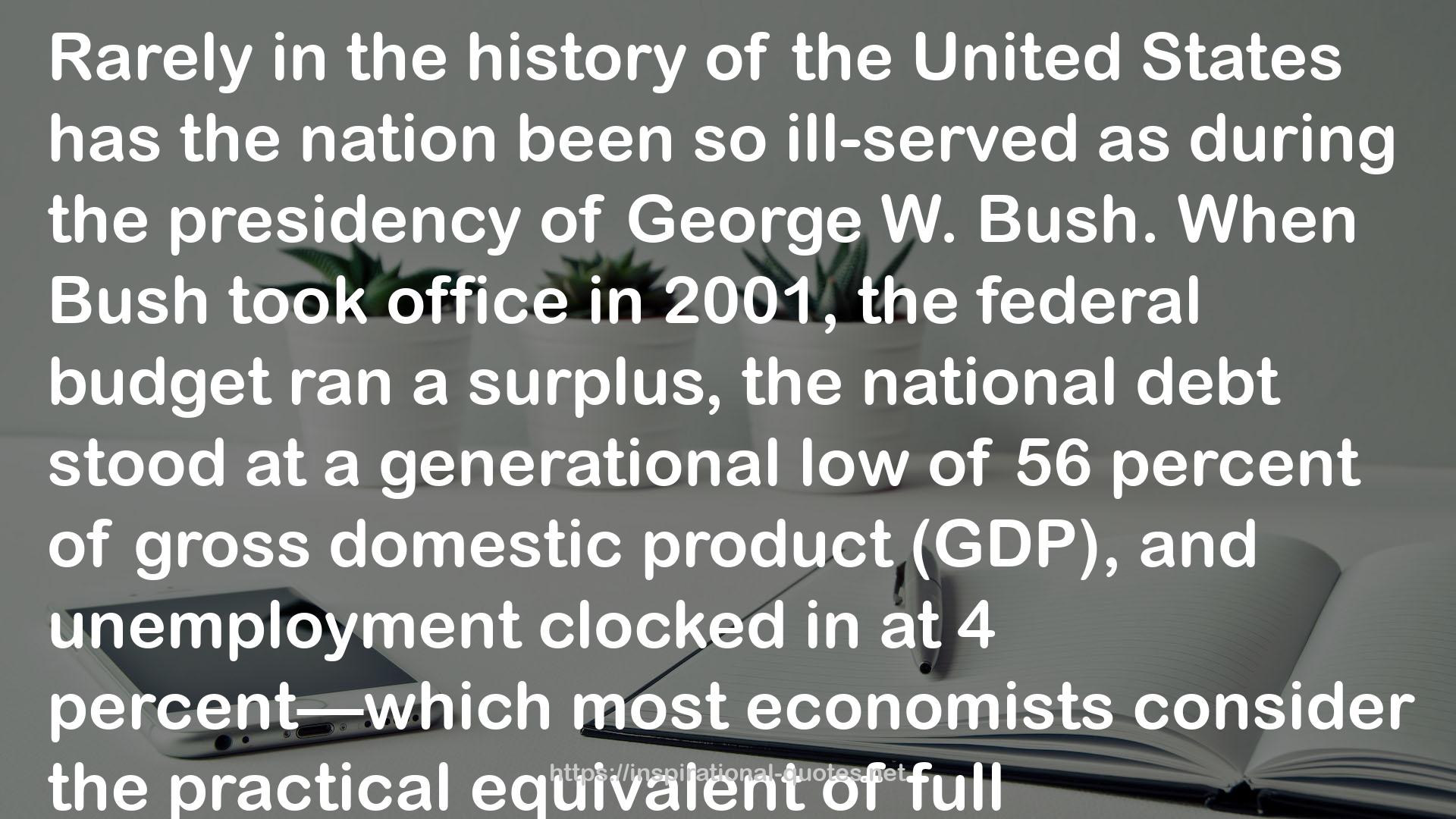" Rarely in the history of the United States has the nation been so ill-served as during the presidency of George W. Bush. When Bush took office in 2001, the federal budget ran a surplus, the national debt stood at a generational low of 56 percent of gross domestic product (GDP), and unemployment clocked in at 4 percent—which most economists consider the practical equivalent of full employment. The government’s tax revenue amounted to $2.1 trillion annually, of which $1 trillion came from personal income taxes and another $200 billion from corporate taxes. Military spending totaled $350 billion, or 3 percent of GDP—a low not seen since the late 1940s—and not one American had been killed in combat in almost a decade. Each dollar bought 1.06 euros, or 117 yen. Gasoline cost $1.50 per gallon. Twelve years after the Berlin Wall came down, the United States stood at the pinnacle of authority: the world’s only superpower, endowed with democratic legitimacy, the credible champion of the rule of law, the exemplar of freedom and prosperity.1 Eight years later the United States found itself in two distant “wars of choice”; military spending constituted 20 percent of all federal outlays and more than 5 percent of the gross domestic product. The final Bush budget was $1.4 trillion in the red and the national debt was out of control. The nation’s GDP had increased from $10.3 trillion to $$14.2 trillion during those eight years, but a series of tax cuts that Bush introduced had reduced the government’s revenue from personal income taxes by 9 percent and corporate taxes by 33 percent. Unemployment stood at 9.3 percent and was rising; two million Americans had lost their homes when a housing bubble burst, and new construction was at a standstill. The stock market had taken a nosedive, the dollar had lost much of its former value, and gasoline sold for $3.27 a gallon.2 The United States remained the world’s only superpower, but its reputation abroad was badly tarnished. "
― Jean Edward Smith , Bush
